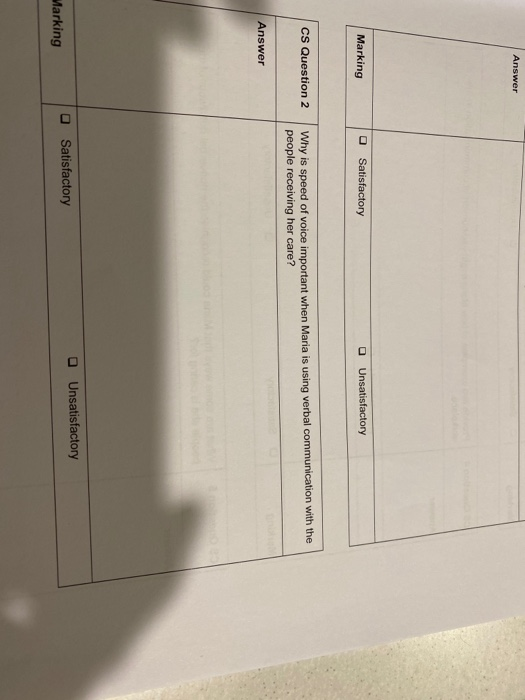How to Start a Communication Company?
Starting a communication company requires a thorough understanding of the telecommunications industry and a significant investment. It is not an easy task due to the specific requirements and regulations in place.
However, with the necessary resources and effort, it is possible to establish a successful communication company. Communication companies facilitate global communication through various channels such as phones, the internet, airwaves, cables, wires, and wireless technology. These companies play a crucial role in enabling connectivity and communication on a large scale.
By offering communication services and infrastructure, they ensure individuals and businesses can communicate effectively and efficiently. Overall, starting a communication company involves careful planning, market research, securing funding, and complying with industry regulations.
Understanding The Communication Industry
Starting a communication company can be a challenging endeavor due to specific requirements and regulations. However, with the right resources, investment, and effort, it is possible to establish a successful telecommunication business.
Starting a communication company can be an exciting and lucrative venture. In order to succeed in this competitive landscape, it is important to have a solid understanding of the communication industry. This section will provide an overview of the telecommunication sector, discuss the importance of communication companies, and highlight growth opportunities within the industry.
Importance Of Communication Companies
- Communication companies play a vital role in today’s interconnected world. They provide the infrastructure and services that enable individuals, businesses, and governments to connect and communicate effectively.
- These companies facilitate the transfer of information, whether it be through telephone calls, internet connectivity, or data transmission.
- Communication companies also contribute to economic growth by creating jobs and driving innovation in the field of technology.
- By enabling communication across borders and cultures, these companies promote global collaboration and understanding.
Overview Of Telecommunication Sector
- The telecommunication sector encompasses a wide range of services, including fixed and mobile telephony, internet service providers, cable and satellite television, and data networking.
- Major players in this industry include telecommunications giants such as Vodafone Group, Verizon Communications, BT Group, Deutsche Telekom, and AT&T.
- The sector is highly regulated and subject to government oversight to ensure fair competition and protect consumer interests.
- With the rapid advancement of technology, the telecommunication sector continues to evolve and adapt to changing consumer demands.
Growth Opportunities In The Communication Industry
- The communication industry offers numerous growth opportunities for aspiring entrepreneurs. Here are some key areas to consider:
- Internet Service Providers (ISPs): The demand for high-speed internet continues to rise, presenting an opportunity for companies to provide reliable and fast internet access to homes and businesses.
- Mobile Network Operators: With the increasing popularity of smartphones and mobile devices, there is a growing need for mobile network operators to provide efficient and affordable mobile services.
- Cloud Communications: The adoption of cloud-based communication solutions is on the rise, presenting opportunities for companies to offer scalable and cost-effective communication solutions.
- Internet of Things (IoT): The IoT market is expanding rapidly, creating opportunities for companies to provide connectivity solutions for various devices and applications.
- 5G Technology: The rollout of 5G technology promises faster speeds and lower latency, opening up opportunities for companies to offer innovative services and applications.
Understanding the communication industry is crucial when starting a communication company. By recognizing the importance of communication companies, gaining an overview of the telecommunication sector, and identifying growth opportunities, entrepreneurs can position themselves for success in this dynamic industry.
Conducting Market Research
Starting a communication company involves conducting market research, understanding the telecommunication sector, and making the necessary investments. By analyzing the industry landscape and identifying target customers and competitors, you can develop a strong business strategy for your communication company.
Market research is a crucial step when starting a communication company. It helps you gather essential information about your target audience, analyze your competitors, and identify market trends and demands. By conducting thorough market research, you can make informed decisions that will steer your company towards success.
Below, we will discuss the key aspects of conducting market research for starting a communication company.
Identifying Target Audience
Before launching your communication company, it is vital to identify your target audience. Understanding who your potential customers are will help you tailor your services and marketing strategies to meet their specific needs. Here are some steps to identify your target audience:
- Define your niche: Determine the specific area within the communication industry that you want to focus on, such as social media management, public relations, or voice-over services.
- Conduct surveys: Create surveys to gather information about your target audience’s preferences, pain points, and expectations. This will help you understand their communication needs and tailor your services accordingly.
- Analyze demographics: Consider factors such as age, gender, location, and income level to create customer personas that represent your target audience segments.
- Study customer behavior: Analyze online and offline behavior to gain insights into where your target audience spends their time and how they prefer to communicate.
Identifying your target audience will enable you to develop effective marketing campaigns and provide services that resonate with your customers’ needs.
Analyzing Competitors In The Market
Analyzing your competitors is essential for understanding the competitive landscape and identifying opportunities for differentiation. Here’s how you can analyze your competitors in the communication market:
- Identify key competitors: Research and create a list of the main players in the communication industry who offer similar services or target similar audiences.
- Analyze their strengths and weaknesses: Study your competitors’ websites, social media profiles, and customer reviews to identify their unique selling points and areas for improvement.
- Differentiate your services: Identify gaps in the market that your competitors are not addressing and develop unique selling propositions that set your communication company apart.
- Monitor their marketing strategies: Keep an eye on your competitors’ marketing campaigns, content creation, and pricing strategies. Learn from their successes and failures to improve your own marketing efforts.
Analyzing your competitors will help you understand the market landscape, refine your services, and develop effective strategies to stand out from the competition.
Researching Market Trends And Demands
Staying up-to-date with market trends and demands is crucial for any communication company. Here are some methods to research market trends and demands:
- Stay informed through industry publications and news: Subscribe to industry-specific publications, blogs, and newsletters to stay updated on the latest trends, technologies, and regulations in the communication industry.
- Use online tools and analytics: Utilize tools like Google Trends and social media analytics to identify popular topics, keywords, and patterns related to communication services.
- Conduct customer surveys and focus groups: Engage with your target audience through surveys and focus groups to gather insights into their evolving needs and preferences.
- Monitor industry influencers: Follow influential figures in the communication industry on social media platforms to gain insights into emerging trends and demands.
By researching market trends and demands, you can align your services with the evolving needs of your target audience, ensuring the long-term success of your communication company.
Building A Business Plan
Starting a communication company involves careful planning and strategic decision-making. Learn how to build a solid business plan to navigate the specific requirements and regulations of the telecommunications industry and make the necessary investments for success.
Defining Company Objectives And Goals
- Identify the purpose of your communication company: Determine what specific communication services your company will offer and what problem it aims to solve.
- Set achievable objectives: Establish clear goals for your company, such as growth targets, customer acquisition, or market share.
- Define target audience: Identify the demographic or industry segment you want to serve with your communication services.
- Research competition: Understand your competitors and analyze their strengths and weaknesses to differentiate your company.
Developing A Unique Value Proposition
- Identify your unique selling points (USPs): Determine what sets your communication company apart from competitors.
- Offer a solution or benefit: Clearly define the value your company provides to customers, whether it’s cost savings, superior service, or innovative technology.
- Highlight competitive advantages: Emphasize the strengths that make your company stand out and attract potential clients.
- Craft a compelling message: Create a concise and persuasive statement that conveys your company’s value proposition to customers.
Creating A Marketing And Sales Strategy
- Conduct market research: Gather information about the communication industry, trends, customer needs, and preferences.
- Identify target market segments: Determine which customer groups are most likely to benefit from your services.
- Develop marketing channels: Select appropriate advertising platforms, including digital marketing, social media, and industry events.
- Build customer relationships: Engage with potential customers through effective communication, personalized marketing strategies, and exceptional customer service.
- Design a sales strategy: Define sales funnels, set pricing, establish sales quotas, and identify key performance indicators to measure success.
Starting a communication company requires careful planning and strategy formulation. By defining objectives and goals, developing a unique value proposition, and creating a marketing and sales strategy, you can position your company for success in the competitive communication industry.
Legal And Regulatory Considerations
Starting a communication company involves navigating through legal and regulatory considerations. These requirements and regulations are specific to the telecommunications industry, demanding significant investment and resources to establish and operate a successful business in this field.
Registering The Company And Obtaining Licenses:
- Ensure that the name chosen for your communication company is unique and not already in use by another business in the same industry.
- Register your company as a legal entity with the appropriate government agency, such as the Secretary of State’s office or Companies House.
- Obtain all necessary licenses and permits required for operating a communication company. This may include telecom licenses, broadcasting licenses, or any specific licenses required for the services you plan to offer.
- Research and comply with local and national regulations related to business licensing, taxes, and any other legal requirements specific to the communication industry.
Understanding Telecommunication Regulations:
- Familiarize yourself with the laws and regulations governing the telecommunication industry in your country or region.
- Determine the regulatory body responsible for overseeing communication companies and their operations.
- Stay updated on any changes or updates to these regulations to ensure compliance at all times.
- Consider consulting with a legal professional or industry expert to fully understand the legal framework and requirements for your communication company.
Complying With Data Privacy And Security Laws:
- Understand and comply with data privacy laws, such as the General Data Protection Regulation (GDPR) or the California Consumer Privacy Act (CCPA), depending on your target market.
- Implement robust data privacy and security measures to protect customer information and prevent data breaches.
- Develop a privacy policy and terms of service that clearly outline how customer data will be collected, stored, and used.
- Train your employees on data privacy best practices and ensure that they follow strict protocols when handling sensitive customer information.
Remember, starting a communication company requires careful consideration of legal and regulatory requirements. By registering your company, obtaining the necessary licenses, understanding telecommunication regulations, and complying with data privacy and security laws, you can establish a strong foundation for your business’s success.
Setting Up The Infrastructure
Starting a communication company requires careful planning and setting up the necessary infrastructure. From establishing phone lines and internet connectivity to procuring the required equipment, setting up the infrastructure is crucial for the success of the company.
Choosing The Right Technology And Equipment:
- Evaluate different technologies and equipment available in the market for communication companies.
- Consider factors such as scalability, reliability, cost-effectiveness, and compatibility with future advancements.
- Look for equipment that supports multiple communication channels, such as voice, data, and video.
- Choose equipment that aligns with your company’s goals and objectives.
- Consider investing in advanced technologies like cloud-based systems, VoIP (Voice over Internet Protocol), and AI-powered communication tools for enhanced efficiency and customer experience.
Establishing Communication Networks:
- Identify the target market and understand their communication needs.
- Determine the type of network required, such as wired or wireless, based on factors like coverage area, bandwidth requirements, and user density.
- Partner with reputable network service providers to ensure reliable connectivity.
- Install network infrastructure components like routers, switches, and access points to establish the communication network.
- Implement security measures to protect the network from cyber threats and ensure data privacy.
Building A Strong It Infrastructure:
- Assess your company’s IT requirements, including hardware, software, and network infrastructure.
- Invest in robust servers, storage devices, and backup systems to handle the communication company’s data.
- Implement a scalable and secure cloud infrastructure to store and access data from anywhere.
- Set up efficient IT support systems to address any technical issues promptly.
- Ensure compliance with data protection regulations and implement appropriate security measures to safeguard sensitive information.
Starting a communication company requires careful consideration of the technology, equipment, and infrastructure needed to provide reliable communication services. By choosing the right technology and equipment, establishing communication networks, and building a strong IT infrastructure, you can lay the foundation for a successful communication company.

Credit: www.cartoonstock.com
Hiring And Training Employees
Starting a communication company involves hiring and training employees with expertise in telecommunications and providing them with the necessary resources to meet the specific requirements and regulations of the industry. Investment and effort are crucial to succeed in this competitive field.
Starting a communication company can be an exciting venture that requires careful planning and execution. One of the crucial aspects of building a successful communication company is hiring and training employees. Identifying key roles and positions, recruiting skilled professionals, and providing ongoing training and development are essential steps in this process.
Let’s explore each of these aspects in more detail:
Identifying Key Roles And Positions:
When starting a communication company, it’s important to identify the key roles and positions that are vital for the smooth functioning of the business. This involves assessing the specific needs of your company and determining the skill sets required for each position.
Some key roles and positions to consider include:
- Communications Manager: Responsible for overseeing all communication activities and strategies.
- Marketing Specialist: In charge of creating and implementing marketing plans to promote the company’s services.
- Sales Representatives: Responsible for generating leads and securing new clients.
- Technical Support Team: Ensures that all communication systems and equipment are functioning properly.
- Customer Service Representatives: Handles inquiries and provides support to clients.
By identifying these key roles and positions, you can build a strong foundation for your communication company and ensure that all essential tasks are covered.
Recruiting Skilled Professionals:
Once you have identified the key roles and positions, the next step is to recruit skilled professionals who can fulfill these roles effectively. Here are some strategies to consider when recruiting:
- Develop a comprehensive job description for each position, outlining the required qualifications, experience, and skills.
- Advertise the job openings on relevant job boards and industry-specific websites.
- Utilize social media platforms to reach a wider pool of potential candidates.
- Conduct thorough interviews to assess the candidates’ suitability for the role.
- Check references and verify the candidates’ qualifications before making a final decision.
By following these recruitment strategies, you can attract and hire skilled professionals who are the right fit for your communication company.
Providing Ongoing Training And Development:
In the ever-evolving field of communication, it’s crucial to provide ongoing training and development opportunities for your employees. This ensures that they stay up to date with the latest industry trends and technologies. Here are some ways to provide continuous training and development:
- Conduct regular workshops and seminars to enhance skills and knowledge.
- Encourage employees to attend industry conferences and networking events.
- Provide access to online courses and resources that are relevant to their roles.
- Assign mentors or coaches who can guide employees in their professional growth.
- Establish a culture of learning and encourage employees to pursue professional certifications.
By investing in the ongoing training and development of your employees, you can create a skilled and knowledgeable workforce that is equipped to meet the ever-changing demands of the communication industry.
Starting a communication company requires meticulous planning and execution, and hiring and training employees are critical steps in this process. By identifying key roles and positions, recruiting skilled professionals, and providing ongoing training and development, you can lay a solid foundation for your communication company’s success.
Remember, investing in your employees is investing in the future of your business.
Developing Strategic Partnerships
Starting a communication company involves developing strategic partnerships to ensure success in the industry. By cultivating relationships with other businesses, you can enhance your offerings, expand your reach, and create innovative solutions for your clients. With the right partners, your communication company can thrive and stay ahead of the competition.
Collaborating with Telecom Service Providers:
- Partner with established telecom service providers to leverage their network infrastructure and services.
- Enhance your communication company’s reach and offerings by utilizing their extensive network coverage.
- Forge strategic partnerships to gain access to specialized technologies and resources.
- Collaborate on joint marketing initiatives to increase brand visibility and attract new customers.
- Benefit from their expertise in regulatory compliance and industry best practices to ensure smooth operations.
Partnering with Hardware and Software Vendors:
- Establish partnerships with hardware and software vendors to source reliable and high-quality equipment.
- Leverage their expertise in telecommunications hardware and software development.
- Gain access to advanced communication technologies and innovative solutions.
- Receive ongoing technical support and product updates to stay ahead of the competition.
- Collaborate on product development and customization to meet the unique needs of your communication company.
Establishing Alliances with Industry Associations:
- Join industry associations relevant to the communication sector to connect with industry leaders.
- Attend industry conferences and events to expand your network and gain industry insights.
- Stay updated on the latest trends, technologies, and regulatory changes through association resources.
- Collaborate with other members on research and development projects.
- Leverage the association’s credibility and reputation to build trust among customers and stakeholders.
Remember, developing strategic partnerships is crucial for the success of your communication company. Collaborating with telecom service providers, partnering with hardware and software vendors, and establishing alliances with industry associations will help you create a strong foundation and gain a competitive edge in the industry.
Marketing And Branding
Starting a communication company requires careful planning and investment, as the telecommunication sector encompasses global communication through various mediums. From phone and internet services to cables and wireless connections, communication companies play a vital role in facilitating communication on a large scale.
Creating A Memorable Brand Identity:
- Define your brand values: Clearly identify what your communication company stands for and what values it represents.
- Develop your brand message: Craft a unique and compelling message that communicates the essence of your company.
- Design a memorable logo and visual identity: Create a visually appealing logo and establish a consistent visual identity that reflects your brand values.
- Use consistent branding across all touchpoints: Ensure that your brand identity is consistently applied across your website, social media profiles, marketing materials, and any other customer touchpoints.
- Build brand recognition through consistent messaging and visual elements: Use your brand message and visual identity consistently to create recognition and familiarity among your target audience.
- Incorporate storytelling into your brand identity: Create a compelling narrative that showcases your company’s history, values, and vision.
Developing An Effective Marketing Plan:
- Identify your target audience: Define your ideal customer and understand their needs, preferences, and pain points.
- Research your competitors: Analyze your competitors’ marketing strategies and identify any gaps or opportunities in the market.
- Set clear marketing objectives: Establish specific goals and metrics for your marketing efforts to track your progress.
- Define your unique selling proposition (USP): Highlight what sets your communication company apart from competitors and use it as a key message in your marketing.
- Select the right marketing channels: Determine which platforms and channels are most effective for reaching your target audience. Consider traditional advertising, social media, content marketing, and email marketing.
- Create a content marketing strategy: Develop valuable and engaging content that resonates with your target audience.
- Allocate a marketing budget: Determine how much you can invest in marketing activities and allocate your resources strategically.
- Track and analyze your marketing efforts: Regularly monitor and evaluate the success of your marketing campaigns to identify areas for improvement and optimize your strategies accordingly.
Leveraging Digital Marketing Channels:
- Establish a strong online presence: Create a professional website that showcases your services, expertise, and client testimonials.
- Optimize your website for search engines: Implement SEO strategies to improve your website’s visibility in search engine results.
- Utilize social media platforms: Use platforms like Facebook, Twitter, and LinkedIn to engage with your target audience, share relevant content, and promote your services.
- Implement email marketing campaigns: Build an email list and design effective email campaigns to nurture leads and communicate with existing clients.
- Invest in paid advertising: Consider using search engine marketing and social media advertising to reach a wider audience and generate leads.
- Develop a content marketing strategy: Publish high-quality content that educates, informs, and entertains your target audience.
- Track and measure your digital marketing efforts: Implement analytics tools to monitor the performance of your digital marketing campaigns and make data-driven decisions for optimization.
Remember, developing a strong brand identity and implementing an effective marketing plan are crucial steps in starting and growing a successful communication company. By creating a memorable brand identity, developing a strategic marketing plan, and leveraging digital marketing channels, you can establish a strong presence in the industry and attract your target audience.
Providing Excellent Customer Service
Starting a communication company requires providing excellent customer service to ensure client satisfaction. By focusing on efficient communication channels, prompt response times, and personalized support, you can establish a strong foundation for your company and attract loyal customers.
Customer service is a crucial aspect of any communication company. It plays a significant role in building customer satisfaction and loyalty. To provide excellent customer service, there are several key strategies that companies can implement:
Implementing Customer Relationship Management Systems:
- Utilize customer relationship management (CRM) systems to efficiently manage customer interactions and data.
- Keep track of customer preferences, histories, and feedback to personalize communication and improve overall service.
- CRM systems can streamline processes, automate tasks, and provide valuable insights to enhance customer experiences.
Training Customer Support Teams:
- Invest in comprehensive training programs for customer support teams to ensure they have the necessary skills and knowledge to deliver exceptional service.
- Train employees on effective communication techniques, problem-solving, and product knowledge.
- Conduct regular training sessions to keep up with industry trends and updates.
Monitoring And Improving Customer Satisfaction:
- Regularly monitor and measure customer satisfaction through surveys, feedback forms, and online reviews.
- Actively listen to customer complaints and issues, and take prompt actions to address them.
- Continuously improve service by analyzing customer feedback and implementing necessary changes.
Providing excellent customer service is essential for the success of a communication company. By implementing customer relationship management systems, training customer support teams, and monitoring and improving customer satisfaction, companies can ensure that they meet and exceed customer expectations, leading to long-term success and growth.
Ensuring Compliance And Security
Starting a communication company requires ensuring compliance and security. It involves meeting specific requirements and regulations while making investments and efforts to establish a successful telecommunications business.
Starting a communication company involves more than just setting up the infrastructure and acquiring customers. It is essential to prioritize compliance with privacy regulations and implement robust data security measures to protect sensitive information. Additionally, conducting regular security audits can help identify vulnerabilities and mitigate potential risks.
In this section, we will explore the key steps to ensure compliance and security in your communication company.
Implementing Data Security Measures:
- Encrypt sensitive data: Use industry-standard encryption protocols to secure customer data and prevent unauthorized access.
- Implement secure authentication methods: Utilize strong passwords, multi-factor authentication, and user access controls to protect against unauthorized user access.
- Regularly update software and systems: Keep your communication network and software up to date with the latest security patches and updates to address any known vulnerabilities.
- Train employees on data security: Educate your employees on best practices for handling sensitive information and the importance of data privacy and security.
- Use secure communication channels: Employ secure communication channels, such as encrypted VoIP services and secure messaging platforms, to protect confidential interactions.
Complying With Privacy Regulations:
- Familiarize yourself with relevant regulations: Stay up to date with the privacy regulations applicable to your communication company, such as the General Data Protection Regulation (GDPR) or the California Consumer Privacy Act (CCPA).
- Obtain necessary permissions: Ensure that you have proper consent from your customers before collecting and processing their personal data, as required by privacy regulations.
- Develop a data protection policy: Create a comprehensive data protection policy that outlines how you handle and protect customer data, including data retention and disposal procedures.
- Appoint a data protection officer (DPO): Designate an individual responsible for ensuring compliance with privacy regulations and act as the main point of contact for any related inquiries or concerns.
- Conduct periodic privacy impact assessments: Regularly assess the impact of your data processing activities on individual privacy rights to identify and address any potential risks.
Conducting Regular Security Audits:
- Hire external auditors: Engage the services of independent security auditors to conduct thorough assessments of your communication company’s security controls and practices.
- Perform penetration testing: Conduct regular penetration tests to identify vulnerabilities in your network infrastructure and applications.
- Review access controls: Regularly review and update access control policies to ensure that only authorized individuals have access to sensitive resources.
- Monitor network activity: Implement robust network monitoring systems to detect and respond to any suspicious or malicious activities promptly.
- Establish an incident response plan: Develop a comprehensive incident response plan that outlines the steps to be taken in the event of a security breach or data incident.
By implementing data security measures, complying with privacy regulations, and conducting regular security audits, you can establish a communication company that prioritizes the protection of sensitive information and earns the trust of your customers. Remember, safeguarding your customers’ data is not only essential for compliance but also a vital aspect of building a successful communication business.
Scaling And Expanding The Business
Starting a communication company can be challenging due to specific requirements, regulations, and necessary investments. However, with the right resources and effort, it is possible to scale and expand the business successfully.
Starting a communication company can be a challenging but rewarding endeavor. Once you have established your business and built a solid foundation, the next step is to focus on scaling and expanding your operations. This involves monitoring key performance indicators, identifying opportunities for growth, and expanding into new markets or services.
Let’s explore each of these aspects in more detail.
Monitoring Key Performance Indicators
Monitoring key performance indicators (KPIs) is crucial for assessing the health and progress of your communication company. By regularly tracking these metrics, you can make informed decisions and adjust your strategies accordingly. Here are some important KPIs to monitor:
- Customer Acquisition Cost (CAC): Calculate the cost of acquiring each new customer, including marketing expenses and sales efforts.
- Customer Churn Rate: Measure the rate at which customers leave your company over a specific period.
- Average Revenue Per User (ARPU): Determine the average revenue generated by each customer.
- Customer Lifetime Value (CLV): Calculate the total revenue a customer is expected to generate over their lifetime with your company.
- Return on Investment (ROI): Assess the profitability of your marketing and advertising campaigns.
- Employee Productivity: Track the efficiency and performance of your employees.
By regularly reviewing these KPIs, you can identify areas of improvement and make data-driven decisions to drive growth.
Identifying Opportunities For Growth
To expand your communication company, it’s important to continuously identify and capitalize on opportunities for growth. Here are some strategies to consider:
- Market Research: Conduct thorough market research to identify untapped niches, emerging trends, and customer demands.
- Competitive Analysis: Analyze your competitors to understand their strengths, weaknesses, and market positioning. Identify gaps in the market that you can fill.
- Customer Feedback: Gather feedback from your existing customers to understand their needs and preferences. Use this information to improve your products or services.
- Partnerships and Collaborations: Explore strategic partnerships and collaborations with other businesses in complementary industries to expand your reach and offerings.
- Innovate and Diversify: Constantly innovate your products or services to stay ahead of the curve. Consider diversifying your offerings to cater to different customer segments or industries.
By proactively seeking out growth opportunities, you can position your communication company for future success.
Expanding Into New Markets Or Services
Expanding into new markets or offering additional services can fuel the growth of your communication company. Here’s how you can approach this expansion:
- Market Analysis: Evaluate potential markets based on factors such as demographics, competition, regulatory environment, and demand for your services.
- Adaptation and Localization: Customize your products or services to cater to the specific needs and preferences of the new market. Consider localizing your marketing strategies and communication channels.
- Strategic Alliances: Form partnerships with local businesses or industry experts who can help you navigate the new market and establish a strong presence.
- Pilot Projects: Conduct pilot projects or trials to test the viability and acceptance of your offerings in the new market. Use the insights gained to refine your approach before fully expanding.
- Continuous Learning: Stay updated on industry trends, market dynamics, and cultural nuances of the new market. Continuously learn and adapt your strategies accordingly.
Expanding into new markets or services can open up new revenue streams and help you reach a larger customer base.
As you scale and expand your communication company, remember to regularly monitor your key performance indicators, seize growth opportunities, and strategically enter new markets or services. With a solid foundation and a well-planned growth strategy, your communication company can thrive in today’s competitive landscape.
Frequently Asked Questions On How To Start A Communication Company?
Is It Hard To Start A Telecom Company?
Starting a telecom company can be challenging due to specific requirements, regulations, and significant investment needed. Telecom companies enable global communication through various mediums like phones, internet, airwaves, cables, wires, and wireless technology. These companies handle call detail data, network data, and customer data to ensure seamless communication.
While starting a telecom company may seem difficult, the resources and avenues for investment are available for entrepreneurs willing to put in the effort. It is essential to understand the industry’s intricacies, follow regulatory guidelines, and secure the necessary finances to establish and operate a successful telecom business.
What Do Communication Companies Do?
Communication companies are responsible for enabling global communication through various mediums such as phones, the Internet, airwaves, cables, wires, and wireless technology. These companies facilitate the transmission of information and data between individuals, businesses, and organizations on a local and international scale.
They provide the infrastructure, services, and technologies necessary for communication to occur efficiently and effectively. Communication companies also manage and maintain the hardware and software components of the communication networks, ensuring their optimal performance. Additionally, they collect and analyze data related to customer usage, call details, and network status to improve their services and make informed business decisions.
Overall, communication companies play a vital role in connecting people and facilitating the exchange of information globally.
What Is Data In Telecommunications?
Data in telecommunications refers to various types of information that are crucial for the functioning of telecommunication networks. This includes call detail data, which provides information about the calls that pass through the networks. It also includes network data, which describes the condition of the hardware and software components within the network.
Furthermore, customer data plays a significant role in telecommunications, as it contains information about the telecommunication customers. These different types of data enable telecommunication companies to monitor and manage their networks effectively, analyze usage patterns, and provide better services to their customers.
By analyzing this data, telecommunication companies can gain insights into network performance, customer behavior, and market trends, allowing them to make informed decisions and improve their overall operations.
What Is Your Understanding Of The Telecom Industry?
The telecom industry consists of companies that facilitate global communication through various means such as phone, internet, airwaves, cables, wires, and wireless technologies. These companies enable communication on a large scale and connect people around the world. Telecom companies handle call detail data that includes information about calls passing through their networks.
They also manage network data, which provides insights into the status of hardware and software components within the network. Additionally, customer data is collected to better understand and serve the needs of telecommunication customers. Starting a telecom company can be challenging due to the specific requirements and regulations in the industry, as well as the significant investment needed.
However, for those willing to make the necessary investments, resources are available to help kickstart their telecommunication business and achieve success.
Conclusion
Starting a communication company can be a lucrative venture with the potential for growth and success. By following the right steps, you can establish a strong foundation and position yourself in the market. Begin by conducting thorough market research to identify your target audience and competitors.
Next, develop a solid business plan that outlines your goals, strategies, and financial projections. Secure the necessary licenses and permits, and invest in the right technology and infrastructure to ensure efficient communication services. Build a team of skilled professionals and focus on providing exceptional customer service.
Implement effective marketing strategies, utilizing social media and search engine optimization to reach your target audience. Continuous learning and adaptation will be essential to thrive in this ever-evolving industry. With dedication and determination, you can establish a successful communication company and make a significant impact in the market.





